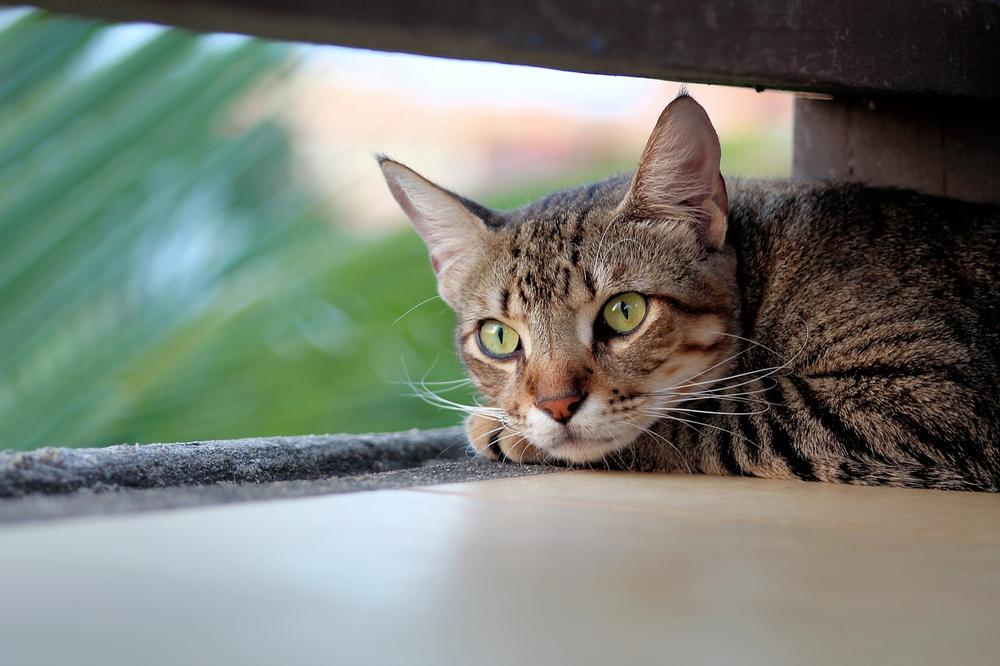Do Cats Remember Being Abandoned?

Remember that time when you felt completely abandoned, left to face the world on your own?
Bet you wondered if anyone even cared.
Well, have you ever stopped to wonder if cats feel the same? 😺
Let's delve into the mysterious minds of our feline friends, shall we?
Do Cats Remember Being Abandoned?
Cats have the ability to remember being abandoned for up to 10 years, which can have a lasting impact on their behavior and emotions. This is particularly true for older cats. Abandoned cats may develop avoidance behavior, separation anxiety, and fear of unfamiliar places.
Cats remember being abandoned. They can hold on to those memories for up to 10 years.
This means that being abandoned can have a lasting impact on their behavior and emotions.
Older cats, especially, are more susceptible to the effects of abandonment.
The fear, stress, and confusion from their past experiences can stick with them even after they find a loving home.
You have to know that cats have both short-term and long-term memory.
Short-term memory only lasts a few minutes, but long-term memory can stretch over a decade.
Memories become stronger through repetition.
So, those moments of abandonment in a cat's early life can deeply affect them.
When a cat has been abandoned, they may develop avoidance behavior towards things that remind them of their past. They might struggle with separation anxiety or show fear in unfamiliar places.
Here's something interesting:

Cats can recognize and form attachments to their previous owners, even if they've been adopted into new families. 😺
But here's the catch...
They can also hold grudges or grieve for lost loved ones. It all depends on how they were treated before being abandoned.
Rescue cats, who have experienced abandonment, have the ability to retain long-term memories.
They can remember specific details about their previous owners or experiences, even after being separated for a long time.
Some behaviors in cats come from their wild ancestors, which suggests that certain aspects of their personalities are remnants from past lives.
So, next time you see your cat behaving in a certain way, bear in mind that these traits have deep roots.
And if you're curious to know more about whether cats remember their owners, I have the perfect resource for you.
In my blog post, Do Cats Remember Their Owners, you can find all the evidence and confirmation you need.
Discover the fascinating insights into the complex bond between cats and their past owners.
You won't want to miss it!
What Happens When a Cat Is Abandoned?
- When cats are abandoned, they gotta find their own chow and a cozy spot to crash.
- Avoiding sharp-toothed predators is key if they wanna stay alive. Always gotta be watchful.
- Figuring out new territory ain't no walk in the park for these abandoned cats. They gotta learn every nook and cranny.
- Abandoned cats go through tough times inside and out. They can get real down, jumpy, and suffer from health issues.
- Growling mutts teach 'em a lesson. They learn how to steer clear of danger and dodgy situations.
- Good experiences leave a mark on 'em. These cats hold onto memories of tasty treats or playful times to rely on later.
- Their genes play a role too. Natural instincts kick in - hunting, sneaking, and hiding when needed.️
- Going back to their old digs messes with their heads. Those humans they remember weren't there anymore. It's confusing as hell.
- The past ain't easy to shake off. Abandoned cats carry habits, worries, and fears with 'em long after they were left behind.
Basically, ditching a cat messes them up big time.
Emotionally and physically, it hits 'em hard.

But what happens when a cat is abandoned?
Well, it's not just the emotional and physical toll it takes on them, but also the negative impact it has on our communities and the welfare of these innocent creatures.
Let me explain further:
Is It Bad to Abandon a Cat?
Don't abandon a cat - it's just not right. 😿
Think about it, you're leaving them alone, scared, and defenseless. Cats deserve better than that.
They need love, care, and a warm home to call their own.
But it's not just about a single cat.
Abandoning cats has serious consequences for our communities too.
When they're left on the streets, they become part of the growing population of strays and feral cats.
And that brings all sorts of problems.
Overpopulation is one; more homeless cats means more suffering.
Not to mention the diseases that can spread among these poor creatures.
It's a terrible mess.
But it's not just the cats who suffer - our environment does too.
They disrupt ecosystems and throw off the balance of local wildlife populations.
As someone who cares, I'm asking you: don't abandon a cat.
There are better options out there.
Instead of leaving them in the cold, consider finding them a loving home.
Give them a fresh start at life.
Leaving a cat to fend for itself will only lead to an uncertain future.
They might struggle to find help and end up even worse off.
So please, think long and hard before abandoning a cat.
They truly deserve better.
But here's the surprising truth about abandoned cats...
The Survival of an Abandoned Cat
If you find a cat that looks abandoned, here's what you can do to help it survive:
- First, check if the cat really seems abandoned.
- Look for signs that it's been neglected or is in distress.
- While figuring out what to do next, give the cat temporary food and water.
- See if the cat has any identification like a collar or tags.
- Take the cat to a local vet or shelter to check if it has a microchip.
- Put up posters nearby to see if anyone owns the cat.
- Share pictures of the cat on social media to expand your search.
- Reach out to animal shelters or rescue groups for assistance.
- Consider taking care of the cat temporarily until it finds a permanent home.
- Consult a vet for a full health check-up and necessary vaccinations.
- Create a safe and comfy space for the cat indoors or outdoors.
- If you have other pets, introduce the cat to them gradually.
- Be patient and show compassion as the cat adapts to its new surroundings.
Your actions could be the reason an abandoned cat gets another chance to live a happy and fulfilled life.
Pay attention, because here's the deal: Further down the blog post, I will provide valuable information on how to make it easier for a cat to adjust to a new home. Keep reading and discover essential tips for ensuring a smooth transition for your new feline friend!
But what happens to cats that are abandoned?
Can they really survive on their own?
Let's take a closer look at the incredible journey these resilient creatures embark on, and how you can play a vital role in their second chance at happiness!
Reasons Why Cats Get Re-Homed
Various reasons can lead to cats being rehomed. Allergies, finances, lifestyle changes, or moving to places without pet allowances are just a few.
It warms your heart to see abandoned and stray cats thrive once loved and cared for.

These rescued felines, full of love, genuinely appreciate their new families.
But remember, cats surrendering to new homes may still encounter stress or depression at times.
With your tender care and support though, these cats can rediscover happiness and find solace once more.
How to Make It Easier for a Cat to Adjust to a New Home
Gradually get your cat used to its new home
Moving to a new place can be overwhelming for a cat, just like it is for us. Cats need time to adjust and feel safe in their new surroundings.
To help them adapt, introduce them slowly to different areas of the house and let them explore at their own pace.
Start by keeping them in a smaller space like a bathroom or bedroom with familiar items such as their litter box, bed, toys, and scratching post.
This will help them feel secure before venturing into larger areas.
Make your cat feel stable and reassured while it settles in
When cats move to a new home, they might feel stressed and display behavioral issues.

To support them during this period:
- Stick to a consistent routine, including feeding times, playtime, and sleep schedules. This will create familiarity and reduce anxiety.
- Engage in interactive play sessions to help relieve stress and burn off energy.
Stability and affection are key during this adjustment phase!
Be kind and patient to help your cat heal and move forward
Moving can trigger feelings of abandonment and mistrust in cats. Showering them with kindness and patience is important for their healing process and building trust.
Every cat has its own way of showing affection.
Take the time to understand what your cat prefers.
Some enjoy cuddles, others prefer gentle brushes.
Pay attention to their body language and respond accordingly.
Above all, never underestimate the care and love that dedicated owners provide to their beloved cats.
The Impact of Abandonment on Cats' Lives
Key takeaways:
- Cats have both short-term and long-term memory, with long-term memory lasting up to 10 years.
- Abandoned cats retain memories of fear, stress, and confusion.
- Older cats are more affected by abandonment compared to kittens.
- Adopted cats may show signs of recognition and attachment to previous owners, but can also display grudges and grief.
- Reactions of rescue cats vary based on their past treatment.
- Cats have the ability to retain long-term memories and recall specific information about previous owners or experiences.
- Abandonment can have emotional and physical impacts on cats, leading to depression, anxiety, and health problems.
- Negative experiences shape avoidance behavior, while positive experiences can be stored and recalled.
- Genetic memories contribute to behaviors like hunting, stalking, and hiding.
- Abandoned cats may return to their former homes and remain distressed by the owner's absence.
- Signs of gratitude from a cat include purring, headbutting, kneading, slow blinking, and tail wagging.
- Abandoning a cat leads to an uncertain fate and it is better to surrender to a loving home.
- Steps should be taken before adopting a street cat to ensure it does not have an owner.
- Outdoor cats have a higher chance of survival compared to indoor cats if abandoned.
- Personal stories demonstrate how rescued cats flourish when given love and care.
And that wraps up today's article.
If you wish to read more of my useful articles, I recommend you check out some of these: Why Has My Cat Started Sleeping Outside, Why Do Cats Have Fear of Balloons, and How Far Do Cats Roam From Their House
Talk soon,
-Sarah Davis